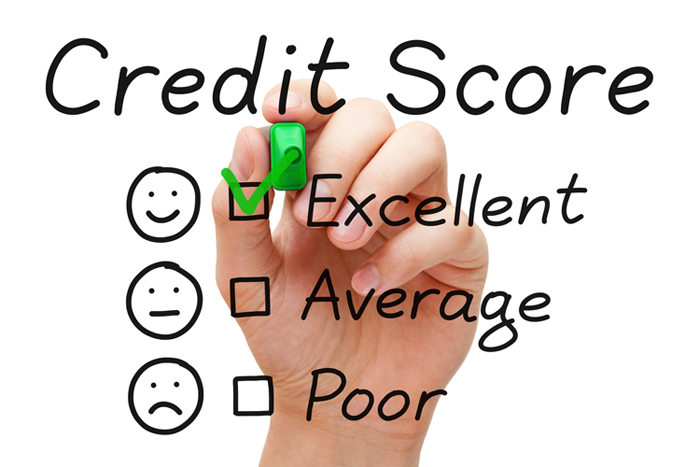Were you aware that even one late or one missed student loan payment affects your credit score?
The fact that the 2014 class graduated with a record high student loan debt of about $33,000 average per student, it is definitely troublesome, BUT on the positive side, it seems like student loan default rates are dropping, mainly because of the availability of repayment programs.
Estimates show that 22% of student loan borrowers haven’t yet defaulted in their loans but are between 90 and 270 days past due on their payments, which means their credit history is more than likely being affected.
The consequences of default on a student loan are well-known, but the ramifications of delinquency, particularly the hit that it takes on your credit score whenever you fail to make your payments on time, are not publicized enough.
MUST READ: UNDERSTAND THE DIFFERENCES BETWEEN DELINQUENCY AND DEFAULT
It can be hard to pinpoint specifically how a late student loan payment can affect your credit score, says Rod Griffin, director of public education for Experian, a leading global information services company that helps individuals check their credit report and credit score.
“The answer to that question is, ‘it depends,’” says Griffin. “A 30-day delinquency can have very different implications for two different people, because credit scores take into account many variables like the length of your credit history and your utilization rate, or the total balance-to-limit ratio on your credit cards.”
The impact of student debt on your credit report can also depend on the scoring model being used. “There are at least hundreds of different credit scoring systems used by lenders,” explains Griffin. “There are credit scores designed only for auto lending, mortgage lending and even insurance purposes. And, different credit scoring systems have different scales.”
As a result, Griffin points out, it can be really dangerous to tell student loan borrowers “if you do ‘X’ with your student loan payment, your score will drop by ‘Y.’”
But while it’s hard to tell exactly how a late student loan payment may affect your credit, it’s important to know that it most definitely will.
“Keep in mind that a student loan is a debt obligation just like any other,” Griffin says. “Once that loan is open, the lender may begin reporting it to the credit reporting companies. Missing payments affects your credit just like any other debt. Payment history is the most important factor in credit scores.”
The lower your credit score, the harder it is to access other forms of credit, like a mortgage and auto loans. It can also make accessing additional credit more expensive via higher interest rates. And it’s not just your eligibility for additional lines of credit that could be restricted. Landlords may deny you the ability to rent an apartment and employers may pass you by for job opportunities if your credit record has too many blemishes.
Besides keeping your student loan payment on track by choosing the right payment plan and sending payments in on time every month, the following are some other tips to keep in mind about student loans and credit ratings.
• Borrow student loans with plenty of repayment protections:
Many prospective college students and parents shopping for student loans make their decisions based on interest rates alone, but flexible repayment terms can mean much more to credit in the long run.
For example, federal student loans offer deferment options that won’t harm your credit when you can’t repay. Private student loans from a bank or lender may also temporarily halt your payments if you’re having difficulty, but it’s at their discretion and is not a consumer right as it is with federal loans. A good rule of thumb is to always exhaust all of your federal student loan options before turning to private loans.
• Know how to recover from student loan default:
Defaulting on a student loan is one of the worst entries for your credit report, but there are ways to recover. You can rehabilitate your defaulted federal student loan by contacting your loan holder and working out a reasonable and affordable monthly payment amount, which will be initially calculated as 15 percent of your disposable income – your adjusted gross income minus 150 percent of the poverty level for your family size.
Then, you’ll need to make nine consecutive, voluntary, on-time monthly payments to your loan holder. After nine successful payments, the loan will be sent to a new lender and servicer and the default will be removed from your credit history, though the delinquency will stay.
You can also consolidate your federal student loans out of default in a shorter period of time, but it won’t remove the default from your record. It’s important to note that both consolidation and rehabilitation will charge collection costs.
With consolidation, it can be as much as 18.5 percent of the total unpaid balance of your student loan, while rehabilitation collection costs can be as much as 16 percent. Ultimately, though, getting that default off your record may be well worth the cost.
Read More: Should I consolidate my student loans?
The team of student loan counselors at Student Loan Geeks assist borrowers with federal student loan consolidation.
We can help you get a lower monthly payment by checking your eligibility to enroll in any repayment program available through the Department of Education. Contact us now at 844-345-GEEKS.

